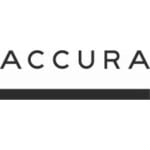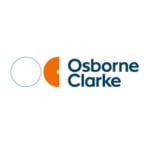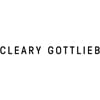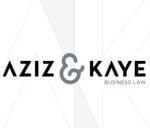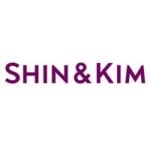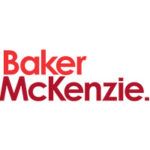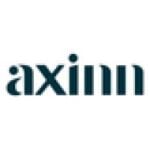-
What is the relevant legislative framework?
Cartel practices are covered by the rules on anticompetitive agreements between competitors set out in the French Commercial Code (Articles L. 420-1 et seq.) and in EU law (Articles 101(1) to 101(3) of the Treaty on the Functioning of the European Union – TFEU).
- Prohibition principle
Article L. 420-1 of the French Commercial Code prohibits agreements which have the object or effect of preventing, restricting or distorting competition on the national market, in terms similar to the prohibition of anticompetitive agreements under EU law (Article 101(1) TFEU).
French authorities and national courts must apply EU law, in parallel with national law, where trade between EU Member States is likely to be affected. Where both national and EU law are applicable, the application of national law to cartels cannot lead to the prohibition of agreements that EU law does not prohibit or exempts.
- De minimis rule (Article L. 464-6-1 of the French Commercial Code)
The French Competition Authority (Autorité de la concurrence – ADLC) may decide not to prosecute certain anticompetitive agreements or concerted practices, provided that they do not relate to public procurement contracts and that the combined market share is below:
- 10% if the agreement or practice involves existing or potential competitors (horizontal agreement);
- 15% if the agreement or practice is implemented by non-competitors (vertical agreement).
These thresholds are identical to those set by the Commission in its ‘De Minimis’ Notice of 30 August 2014.
The De Minimis rule under French law is not applicable to hardcore restrictions of competition listed in Article L. 464-6-2 of the French Commercial Code, notably restrictions that aim to fix sale prices, limit production or sales, or share markets or customers. Other hardcore restrictions excluding the application of the De Minimis rule relate to vertical agreements.
- Exemption mechanisms
French and EU law also contain similar individual exemption mechanisms (Article L. 420-4 of the French Commercial Code and Article 101(3) TFEU) which are based on a balancing of the restrictions of competition contained in an agreement against the efficiencies brought about by that agreement. While certain forms of cooperation between competitors are likely to meet the conditions for individual exemption, this will generally not be the case for cartels aimed at aligning prices or sharing markets.
In theory, certain categories of agreement or certain individual agreements may be exempted by decree (Article L. 420-4 II of the French Commercial Code). This option is rarely used in practice, particularly because of the risk of contradiction with EU law.
EU block exemption regulations (BERs) are directly applicable in France when the practice is also covered by EU law. Where this is not the case, the BERs are still used by the French authorities and courts as an analysis guide.
French law also exempts from the prohibition on cartels practices which are the necessary consequence of a law or regulation adopted for its application (Article L. 420-4 I.1° of the French Commercial Code).
- Criminal liability of individuals
French law imposes criminal penalties on individuals who have played a personal and decisive role in the design, organisation, or implementation of a cartel. Those persons are liable to 4 years’ imprisonment and a fine of €75,000 (Article L. 420-6 of the French Commercial Code).
-
To establish an infringement, does there need to have been an effect on the market?
French and EU law prohibit agreements whose object or effect is to restrict or distort competition. If an agreement has an anticompetitive ‘object’ (i.e. if the agreement itself reveals a sufficient degree of harm of competition), it will be punishable regardless of its actual effects (ECJ, 13-07-1966, Grundig, joined cases 56 and 58-64).
-
Does the law apply to conduct that occurs outside the jurisdiction?
A cartel between companies that are not established in France or the EU may be punished, regardless of where it is implemented, if it has the object or effect of restricting competition on French territory or within the internal market.
The applicability of EU law to anticompetitive conduct implemented outside the EU is justified if it is foreseeable (likely effects) that the conduct at issue will have an immediate and substantial effect in the EU (ECJ, 6-9-2017, case C413-14 P, Intel).
-
Which authorities can investigate cartels?
In France, cartels are mainly investigated by the ADLC or by the Directorate General for Competition of the Ministry of the Economy (DGCCRF).
The Ministry of the Economy informs the ADLC of investigations launched by the DGCCRF before they are initiated, and without delay after the conclusion of these investigations. The ADLC may then decide to take over the practices ex officio and resume the investigation.
If the ADLC does not take over the practices ex officio, the Minister for the Economy may himself impose sanctions for cartel practices not covered by EU law and implemented by companies whose turnover does not exceed EUR 50 million individually and EUR 200 million collectively (so-called “micro-PAC”).
Investigations may also be carried out by the criminal investigation courts if the individuals involved in the cartel are held criminally liable.
National courts (in particular commercial courts) have jurisdiction to declare anticompetitive agreements null and void, and/or to award damages, without having to rely on a previous decision by the ADLC or the Minister for the Economy.
-
How do authorities typically learn of the existence of a potential cartel and to what extent do they have discretion over the cases that they open?
In practice, this information may be collected through leniency applications and whistleblowing programs, cooperation with other competition authorities and public information.
Following the transposition of the ECN+ Directive, Article L.462-8 of the French Commercial Code gives the ADLC the discretion to take legal action against anticompetitive practices. In particular, the ADLC can refuse, by motivated decision, referrals for anticompetitive practices that do not fall within its priorities.
When analysing the last 25 investigations that gave rise to a decision of the ADLC from 2023 to date, 15 of them were ex-officio referrals and 10 came from a third party. The information gathered at the origin of these referrals came from the Directorate General for Competition (DGCCRF) of the Ministry for Economy, parties involved (4 leniency applications), complainants, the ADLC itself and one criminal investigation.
Ex-officio referral is a major asset for the ADLC. According to ADLC’s latest annual report, in 2023, out of the 21 investigations opened into anticompetitive practices, 18 were opened ex officio by the ADLC’s General Prosecutor (Rapporteur Général).
In 2023, the DGCCRF referred 70 potential investigations to the ADLC (out of which 7 retained by the ADLC) and 48 investigation reports (out of which 17 gave rise to ex-officio referrals to the ADLC).
Article 40 of the French Criminal Procedure Code requires the ADLC to immediately report to the Public Prosecutor any crime or offense of which it becomes aware in the course of its duties (in practice, this is not frequent). A rogatory commission may be issued to allow the ADLC to assist in the criminal investigation. Once the investigation is complete, the ADLC may request access to any seized document directly related to the anticompetitive practices under investigation (Article L. 463-5 of the French Commercial Code).
-
What are the key steps in a cartel investigation?
- Referral to the ADLC (Article L. 462-5 of the French Commercial Code)
In addition to its power of self-referral (ex officio) on the proposal of its General Rapporteur (Head of Prosecution), the ADLC may be seized of facts likely to constitute a cartel practice, in particular by:
- the Minister for the Economy,
- third-party companies with a sufficient interest to act,
- local and regional authorities, professional and trade union organisations, approved consumer associations and the Autorité de Régulation de la Communication Audiovisuelle et Numérique (Audiovisual and Digital Communication Regulatory Authority).
In cartel cases, the ADLC often opens cases ex officio following a leniency application from one of the cartel members.
- Competition investigation (Articles L. 450-1 et seq. of the French Commercial Code)
A cartel investigation can give rise to several types of investigation:
- a ‘simple’ investigation: used to request the production of documents required for the procedure, within a reasonable time, and to hear the company’s representatives or employees on site or when summoned,
- an ‘in-depth’ investigation, carried out with judicial authorisation, at the request of the European Commission, the Minister for the Economy or the General Rapporteur of the ADLC. The ‘in-depth’ investigation allows for dawn raids and seizures of evidence (also called ‘visit and seizure operations’). The request for authorisation must include evidence that plausibly supports existence of the practices for which proof is sought. The fact that a simple investigation has initially been carried out does not prevent subsequent dawn raids and seizures from being carried out with judicial authorisation.
- more rarely, a criminal investigation ordered by an examining magistrate to seek evidence of a criminal offence against competition law. The powers of investigators acting in this context are different from those under the French Commercial Code.
In competition matters, as in criminal matters, the rule is that of “freedom of evidence”.
- Ordinary procedure before the ADLC (Articles L. 463-2 and R.463-11 et seq. of the French Commercial Code)
Hearings – The rapporteur in charge of the case conducts hearings, in particular to gather the observations of companies suspected of cartel practices on the evidence collected. The persons interviewed may be assisted by external counsel.
Statement of objections – The General Rapporteur notifies the objections to the parties involved, the plaintiff, the ministers concerned and the Government Commissioner (representative of the State). They may all consult the file (subject to protected business secrets) and have two months to submit their observations (three months in case of exceptional circumstances).
The accused companies are required to inform the ADLC without delay of any change in their legal situation that is likely to affect the conditions under which the objections may be imputed to them. They may not seek to escape liability if they have not provided such information in good time.
Final report – The General Rapporteur then issues a final report, except in case of a simplified procedure (Article L. 463-3 of the French Commercial Code), a leniency procedure or a settlement procedure. It contains an analysis of the objections notified in the light of the information in the file and the observations received. The parties have two months to submit a statement in response.
Hearings – The case is heard at a meeting of the ADLC’s College, during which it is submitted for judgment. The ADLC College generally hears the General Rapporteur, the Government Commissioner and the parties involved. The ADLC may also hear any person whose testimony it deems likely to contribute to its information.
Decision of the ADLC – At the end of the cartel proceedings, the ADLC may:
- order those concerned to put an end to the cartel,
- impose on them any structural or behavioural corrective measure proportionate to the infringement committed and necessary to effectively bring the infringement to an end,
- accept commitments. This possibility is theoretical, as the ADLC has indicated that it does not intend to accept commitments for cartel practices (ADLC Communication of 2 March 2009 on competition commitments),
- impose financial penalty, immediately or in the event of failure to comply with injunctions or undertakings,
- impose daily penalty payments,
- order publicity measures.
-
What are the key investigative powers that are available to the relevant authorities?
In the event of an ‘in-depth’ investigation authorised by a national judge, the officers in charge of the investigation may:
- carry out dawn raids at all premises (business premises and homes), in the presence of the occupier of the premises or their representative,
- seize original documents and any data media and, where applicable, their means of decryption (held or accessible). In France, computer searches involve the entirety of hard disks or computer messaging systems,
- read the documents before they are seized,
- place seals on all commercial premises, documents and information media for the duration of the visit to these premises,
- during the visit, interview the occupier of the premises or his representative in order to obtain any information or explanations that may be useful for the purposes of the investigation,
- hear a person in respect of whom there are reasonable grounds for suspecting that he has committed or attempted to commit an offence.
An appeal may be lodged with the Court of Appeal within 10 days against either the court order authorising the ‘in-depth’ investigation and/or the conduct of the search and seizure operations.
Following the ‘in-depth’ investigation, the investigation generally continues in the form of a ‘simple’ investigation, in particular to request the production of additional documents or to interview company representatives about the documents seized. It is not possible to avoid these hearings or requests for information, on the risk of being charged with the offence of obstruction. The sanction incurred for obstruction is up to 1% of the worldwide turnover of the offender). However, the person interviewed has the right not to incriminate himself.
-
On what grounds can legal privilege be invoked to withhold the production of certain documents in the context of a request by the relevant authorities?
Whether in the field of advice or defence, consultations sent by a lawyer to or intended for his client and correspondence exchanged between the client and his lawyer are covered by professional secrecy (Article 66-5 of law no. 71-1130). This protection also applies to correspondence exchanged with a foreign lawyer (Paris Court of appeals, 8-11-2017, no. 14-13-384).
However, in competition cases, the Supreme Court has limited the exemption from seizure to lawyer-client correspondence relating to the exercise of the rights of the defence – including however correspondence that does not directly concern the investigation that gave rise to the seizure (Cour de cassation, 25-11-2020, no. 19-84.304; Cour de Cassation, 24-09-2024, n°23-84.244).
The confidentiality of lawyer-client correspondence also covers documents internal to the company searched, the essential purpose of which is to transcribe the confidential data contained in the correspondence sent by the lawyer and covered by confidentiality (Supreme Court, 26-01-2022, No. 17-87.359). Apart from this hypothesis, the in-house lawyer’s internal correspondence is not covered by legal privilege. A change in this respect was discussed with the introduction of a bill, but no change has been made to the law to date (Proposal for a law on the confidentiality of consultations by in-house counsels, n°2033).
-
What are the conditions for a granting of full immunity? What evidence does the applicant need to provide? Is a formal admission required?
Cases of full immunity from financial penalties are known as “type 1 cases” (Article R. 464-5-1 of the French Commercial Code and ADLC Communication of 15 December 2023 on the French leniency programme).
Full immunity is granted when the following cumulative conditions are met:
- The company applying for leniency discloses its participation in the cartel;
- It satisfies the conditions for cooperation laid down by law (Article R. 464-5-4 of the French Commercial Code). These conditions are detailed in Question 3.4;
- It is the first to provide the ADLC with sufficient information to enable it to:
- carry out dawn raids, for example by making it possible to identify the places, dates and purpose of contacts or meetings between cartel participants (type 1A case). This is the case where, at the time the request is received, dawn raids or criminal searches have not already been carried out, provided that neither the DGCCRF nor the ADLC already have in their possession sufficient information to enable such dawn raids or criminal searches to be carried out;
- establish the existence of the cartel, provided that no other company has already benefited from a type 1A exemption. This is the case where neither the DGCCRF nor the ADLC already have in their possession sufficient information to establish the existence of the cartel (type 1B case).
An undertaking that has taken measures to force other undertakings to participate or continue to participate in the cartel is excluded from the benefit of the full immunity.
-
What level of leniency, if any, is available to subsequent applicants and what are the eligibility conditions?
Cases of partial exemption from fines are known as “type 2 cases” (Article R.464-5-2 of the French Commercial Code and the ADLC Communication of 15 December 2023 on the French leniency programme).
Partial exemption from fines is granted when the following cumulative conditions are met:
- The company applying for leniency discloses its participation in the cartel;
- It satisfies the conditions for cooperation laid down by law (Article R. 464-5-4 of the French Commercial Code). These conditions are detailed in Question 3.4;
- It provides information that has significant added value in establishing the existence of the cartel, compared to that already in the possession of the DGCCRF or the ADLC.
The reduction in the penalty granted in the case of a type 2 partial exemption may not exceed 50% of the amount of the penalty. Penalty reduction ranges are provided for depending on the order in which the applications are received:
- first company to provide significant added value: reduction of between 25 and 50%;
- second company to provide significant added value: reduction of between 15 and 40%;
- other company providing significant added value: maximum reduction of 25%.
-
Are markers available and, if so, in what circumstances?
Yes. The company may request that it be granted a period of time, during which its application will remain in the order in which it was received, to enable it to gather information in support of its application. In principle, the period granted is one month. An extension may be granted on a case-by-case basis.
-
What is required of immunity/leniency applicants in terms of ongoing cooperation with the relevant authorities?
In addition to the conditions set out under Questions 3.1 and 3.2, the immunity/leniency applicant is required to meet the cumulative cooperation conditions set by law (Article R. 464-5-4 of the French Commercial Code):
- terminate its participation in the cartel, except for what would, in the opinion of the ADLC, be reasonably necessary to preserve the integrity of the investigation;
- provide the ADLC with full, permanent and prompt cooperation as soon as its request is filed and throughout the investigation and enquiry procedure. This implies in particular making its current legal representatives and employees available to the ADLC, as well as making reasonable efforts to do the same with its former legal representatives and employees.
- Not to have, prior to the leniency application, destroyed or falsified evidence of the cartel, nor to have disclosed its intention to make an application or the substance thereof, except to other competition authorities.
-
Does the grant of immunity/leniency extend to immunity from criminal prosecution (if any) for current/former employees and directors?
In order to encourage leniency applications, directors, managers and other members of staff of the company who incur criminal liability are exempt from penalties if the company has benefited from a full immunity from fines under the leniency procedure and if they have personally actively cooperated with the ADLC and the public prosecutor (Article L. 420-6-1 of the French Commercial Code).
Exemption from punishment is not granted to directors, managers and other members of staff if the undertaking’s application for leniency is made after the initiation of administrative or judicial proceedings relating to their participation in a cartel.
As regards damages claims, leniency applications may not be communicated to claimants in a follow-on action (Article L.483-5 of the French Commercial Code). The company benefiting from total leniency may only be held jointly and severally liable to compensate the damage suffered by victims (other than its direct or indirect co-contractors) if these victims haven’t been unable to obtain full compensation for their damage from the other joint and several co-debtors after having previously and unsuccessfully sued them (Article L.481-11 of the French Commercial Code).
-
Is there an ‘amnesty plus’ programme available in respect of evidence provided to prove additional infringements?
France does not have an ‘amnesty plus’ programme. A company’s eligibility for leniency is assessed on a market-by-market basis, depending on its rank in the proceedings and the extent of its cooperation.
On the other hand, if a type 2 leniency applicant is the first to provide decisive information enabling the ADLC to establish additional factual elements leading to an increase in the financial penalties imposed on the cartel members, the ADLC does not take this into account when determining the amount of the penalty imposed on the applicant that provided this information.
-
Does the investigating authority have the ability to enter into a settlement agreement or plea bargain and, if so, what is the process for doing so?
The commitment procedure, under which the ADLC accepts commitments from companies to put an end to its competition concerns (Article L. 464-2 I of the French Commercial Code), is not applied in cartel cases, as the ADLC considers that the infringement of economic public policy requires the imposition of financial penalties.
However, a settlement procedure may be implemented in this type of case after the statement of objections has been served (Article L. 464-2 III of the French Commercial Code, ADLC Communication of 21 December 2018 on the settlement procedure). The undertaking requesting a settlement must waive its right to contest the objections, their qualification and their imputability, in an unambiguous statement recorded in official minutes. Implementation of the settlement also implies the cessation of the sanctioned practice.
If the company wishes to propose behavioural or structural commitments in addition to waiving its right to contest the objections, its request for a settlement must state this and be accompanied by the information necessary to enable the ADLC to assess the substantial, credible and verifiable nature of these proposals.
When the conditions for a settlement are met, and if the General Rapporteur of the ADLC considers it appropriate, he submits a settlement proposal to the undertaking in the form of a fine range, which is not predetermined but depends on the facts of each case. The final penalty is imposed by the ADLC College, without the need for approval by a judge.
The ADLC prefers to use the settlement procedure in cases in which all the accused companies settle. This is the only way that the ADLC can dispense with producing a final report (the second stage of the written adversarial procedure after the statement of objections has been sent).
The settlement procedure may be combined with the leniency procedure. It may be proposed by the General Rapporteur of the ADLC, if he deems it appropriate, in particular with regard to the behaviour of the undertaking having obtained the conditional benefit of the leniency procedure and the objective of simplifying and accelerating the procedures.
The maximum amount of reduction that can be obtained is not determined by the Commercial Code, but the benefit that results for an undertaking from the implementation of a settlement procedure cannot be equivalent to the benefit of a total or partial exemption from penalties granted under leniency (ADLC Communication of 21 December 2018 relating to the settlement procedure).
The settlement procedure is confidential. Settlement materials are not included in the investigation file, whether the settlement procedure is successful or not. If the procedure is successful, the settlement official minutes signed by the company may not be disclosed to the other parties to the procedure or to third parties (ADLC Communication of 21 December 2018 on the settlement procedure).
-
What are the key pros and cons for a party that is considering entering into settlement?
The main advantage of settlement is a reduction in the fine, which may come in addition to a partial exoneration as a result of a leniency procedure. Since the procedure is simplified, the company that has settled saves on its procedural costs and on the indirect costs associated with mobilising internal teams to defend the case. Finally, the fact that it has settled can be highlighted in its communications when the ADLC’s decision is announced.
However, the French settlement procedure is open to a number of criticisms:
- The company must acknowledge the facts, and the content of the settlement is highly constrained by the findings of the investigation team on the facts, their qualification or their imputability as established in the statement of objections.
- This recognition facilitates claims for damages by third parties, even though settlement materials are not disclosable to third parties.
- The range of penalties proposed by the General Rapporteur may be wide, which does not make the amount of the fine much more certain.
- An appeal cannot call into question the acknowledgement of the facts recorded in the settlement official report. The only thing that can be challenged on appeal is the amount of the penalty imposed by the ADLC College, even if it falls within the range initially proposed, and the regularity of the procedure.
-
What is the nature and extent of any cooperation with other investigating authorities, including from other jurisdictions?
EU law organises cooperation between the European Commission and the national competition authorities (NCAs) of the Member States (Regulation 1/2003 and the 2004 Commission Communication on cooperation within the ECN).
A cartel case is likely to be dealt with by several NCAs in parallel, in particular when the intervention of a single NCA would be insufficient to put an end to the entire infringement or to sanction it appropriately. The European Commission will be competent to deal with a cartel case mainly when the cartel affects competition in more than three Member States or when a new competition problem arises that requires uniform treatment within the EU.
Regulation 1/2003 has created the European Competition Network (ECN), which enables NCAs and the European Commission to:
- inform each other of new cases likely to affect trade between Member States;
- coordinate and assist each other in investigations and exchange information on open cases. This allows the ADLC to request assistance from other EU NCAs during dawn raids outside France. It can also carry out dawn raids in France on behalf of another NCA or the European Commission;
- to provide each other with information and to use as evidence of a cartel any element of law or fact, including confidential information collected by the Commission or another NCA for the same purpose;
- ensure the coherence of European competition policy. This is all the more important as all NCAs are directly competent to implement European competition law (Articles 101 and 102 TFEU).
The ECN+ Directive of 2019, transposed into French law in 2021, has further strengthened European cooperation between national competition authorities (mutual information obligations between NCAs, extension of assistance between authorities for dawn raids, notification of procedural acts and recovery of penalties). This doesn’t preclude cooperation with outside EU national competition authorities.
With regard to leniency, the ADLC accepts that a company that has applied for full immunity/leniency to the European Commission may submit only a summary application.
-
What are the potential civil and criminal sanctions if cartel activity is established? How often are civil sanctions and/ or criminal penalties imposed in practice following a finding of an infringement?
There are administrative, civil and criminal penalties.
- Administrative penalties: injunctions and fines (Article L. 464-2 of the French Commercial Code)
The ADLC may order the parties concerned to put an end to the cartel, or impose on them any corrective measure of a structural or behavioural nature proportionate to the infringement committed and necessary to effectively bring the infringement to an end.
Companies that take part in a cartel face fines of up to 10% of the worldwide turnover of the group to which they belong.
The maximum amount of the fine for an association of undertakings is 10% of its worldwide turnover. Where the infringement by an association of undertakings relates to the activities of its members, the maximum amount of the fine is 10% of the sum of the worldwide turnover of each member active on the market affected by the association’s infringement.
- Civil penalties: nullity (Article L. 420-3 of the French Commercial Code) and damages (Article L. 481-1 et seq. of the French Commercial Code)
Any undertaking, agreement or contractual clause relating to a cartel practice is null and void. Only a specialized court can declare this nullity. The ADLC has no jurisdiction to do so.
Likewise, only a specialized court may award damages on the basis of the specific regime introduced in French Law to transpose EU Directive 2014/104/EU on damages actions for anticompetitive practices. Compared with the general law of non-contractual liability, the presumptions enshrined in this specific regime makes it significantly easier for victims to obtain damages: presumption of fault resulting from a previous decision of the ADLC (including decisions rendered on the basis of a request for leniency or a settlement agreement), presumption of harm resulting from a cartel, presumption of absence of passing on of the overcharge. Since the entry into force of the Directive, there has been a clear increase in follow-on damages claims before the national courts but they remain a lot less frequent than in other EU countries (Spain, Netherlands, Germany, …).
- Criminal penalties: criminal liability of individuals (Article L. 420-6 of the French Commercial Code)
French law imposes criminal penalties on individuals who have played a personal and decisive role in the conception, organisation, or implementation of a cartel. Those persons are liable to 4 years’ imprisonment and a fine of €75,000. In practice, criminal penalties are very rare and have only so far been used to penalise bid-rigging.
-
What factors are taken into account when the fine is set? Does the existence of an effective corporate compliance strategy impact the determination of the fine? In practice, what is the maximum level of fines that has been imposed in the case of recent domestic and international cartels?
Financial penalties are assessed in the light of the seriousness and duration of the infringement, the situation of the company sanctioned or the group to which the company belongs, and the possible repetition of anticompetitive practices. They are determined individually for each company sanctioned and reasons are given for each sanction (Article L. 464-2 of the French Commercial Code and Communication issued by the ADLC on the method for determining financial penalties).
The ADLC may decide to reduce the amount of the financial penalty imposed on a company if, during the proceedings, it has paid compensation to the victim of the cartel in execution of a private settlement; put an end to its participation in the cartel as soon as the first investigative measures are carried ; in case of active cooperation beyond legal obligations or if this behaviour was encouraged by public authorities.
The ADLC may decide to increase the amount of the financial penalty imposed on a company if it is a leader, an instigator, if it used constraints or benefited from the illicit gains of efficiency.
The ADLC points out that the development and implementation of compliance programmes are intended to form part of the day-to-day management of companies, particularly when they are of a significant size. Therefore, commitments to implement such compliance programmes generally do not justify a reduction in the penalties incurred for breaches of competition law, especially in the case of particularly serious breaches such as cartels and exchanges of information on future prices and commercial policy (ADLC, Decision n° 17-D-20 of 18 October 2017).
Finally, leniency programs, settlement agreements and particular financial difficulties affecting the company’s ability to pay can be a motive for an additional reduction of the fine.
By way of example, the maximum fines recently imposed on cartels amounted to €76 million by the ADLC and €458 million by the European Commission. Looking at the ADLC’s decisions from 2023 to the present, the vast majority of fines have not exceeded 50% of the fine potentially incurred. However, in a few cases, the ADLC imposed fines ranging from 50% to 100% of the maximum fine incurred.
-
Are parent companies presumed to be jointly and severally liable with an infringing subsidiary?
There is a rebuttable presumption that a subsidiary, whose capital is wholly or almost wholly owned by its parent company, does not autonomously determine its conduct on the market and forms a single undertaking with the parent company (CJCE 10 sept. 2009, Akzo Nobel, C-97/08). Consequently, the parent company is held jointly and severally liable for the commission of the infringement and is jointly and severally liable for the payment of the fine, unless it demonstrates, based in particular on the economic, legal and organisational links it has with its subsidiary, that they do not constitute the same economic entity (Cour de cassation, 18-10-2017, case no. 16.19-120).
-
Are private actions and/or class actions available for infringement of the cartel rules?
Actions for damages in competition matters have benefited from a special regime since the transposition into French law of European Directive 2014/104/EU (Articles L.481-1 et seq. of the French Commercial Code). The regime applies to both individual actions and group actions brought by approved consumer associations. Since the entry into force of the Directive, there has been a clear increase in follow-on damages claims before the national courts but they remain a lot less frequent than in other EU countries (Spain, Netherlands, Germany, …).
Both national and European cartels are covered by the regime. There is no centralised private action at EU level and it is up to the national courts of the Member States to rule on claims for damages arising from a cartel.
The rules of evidence are simplified for natural or legal persons who have suffered damage as a result of the cartel:
- Any cartel practice found and attributed to a person by a decision of the ADLC or an appeal court that has become final on this point is presumed to have been irrefutably established against that person. This also applies to practices that have been the subject of a leniency or settlement.
- On the other hand, an equivalent decision by an NCA or a court in another Member State is merely evidence of the practice and does not create an irrebuttable presumption of competitive misconduct. The same does not apply to final decisions of the European Commission, whose findings on the existence of a cartel and its attribution are binding on French courts.
- With regard to cartels, the law also establishes a rebuttable presumption of actual damage, in order to facilitate compensation for victims (Article L. 481-7 of the French Commercial Code). This is supplemented by a rebuttable presumption that the extra costs incurred by a supplier or direct or indirect customer as a result of the cartel have not been passed on to its own direct co-contractors.
French antitrust damages regime also grants special access to evidence held by the ADLC, which takes account of business confidentiality and seeks to preserve the effectiveness of alternative procedures (leniency, settlement).
-
What type of damages can be recovered by claimants and how are they quantified?
The Commercial Code sets out a non-exhaustive list of losses that can be compensated (Article L.481-3):
- the loss resulting from the additional cost of the cartel, provided that it is not passed on to a subsequent direct contractor;
- the lost profit resulting in particular from the reduction in sales volume linked to the partial or total passing on of the additional cost;
- loss of chance;
- moral damage.
-
On what grounds can a decision of the relevant authority be appealed?
Decisions of the ADLC can be appealed only before the Paris Court of Appeals on their merits.
Decisions of the Paris Court of Appeals can be appealed before the Supreme Court (Cour de cassation) solely on grounds of law, including by the ADLC itself or by the Minister for the Economy.
-
What is the process for filing an appeal?
The ADLC decisions may be appealed within one month to the Paris Court of Appeal (L.464-8 of the French Commercial Code).
An appeal may also be lodged against a decision to impose interim measures, but only within ten days of its notification. In such case, the Paris Court of Appeal must rule on the appeal within one month (Article L. 464-7 of the French Commercial Code).
In both cases, the appeal does not have suspensive effect. The companies concerned must comply with the ADLC’s decision, unless they obtain a stay of execution from the First President of the Paris Court of Appeal, if the latest considers that the decision entails excessive consequences or if new facts have come to light.
The judgment of the Court of Appeal may be appealed on grounds of law to the Supreme Court (Cour de cassation) within one month of its notification. The appeal does not have suspensive effect.
-
What are some recent notable cartel cases (limited to one or two key examples, with a very short summary of the facts, decision and sanctions/level of fine)?
The ADLC is usually fairly active in sanctioning cartels. This has been comparatively less the case since the beginning of 2023.
The ADLC sanctioned four cartels in the precast concrete products sector. Eleven companies have been fined a total of €76,645,000. They were accused of dividing up volumes of worksites by distorting competition during invitations to tender, agreeing to raise the applicable tariff rates, sharing sensitive information during invitations to tender and for a bilateral agreement on prices and customer allocation (ADLC, Decision n° 24-D-06 of 21 May 2024).
-
What are the key recent trends (e.g. in terms of fines, sectors under investigation, any novel areas of investigation, applications for leniency, approach to settlement, number of appeals, impact of hybrid working in enforcement practice – e.g. dawn raids of domestic premises, ‘hybrid’ in-person/virtual dawn raids, access to personal devices, etc.)??
In 2024, the ADLC issued 11 decisions and imposed a total of more than 1.4 billion euros in sanctions.
Recent decisions by the ADLC have focused on vertical agreements (Household appliance market, Côtes de Gascogne wines, low-voltage electrical equipment sector, Chocolats de Neuville) or an abuse of a dominant position (Google and Apple).Only two cases have concerned cartels (precast concrete products sector and inter-island air passenger transport sector)
However, a number of sectors have recently been subjected to dawn raids (agricultural inputs; distribution of electrical cables in the French overseas departments; medical biology sector and glass packaging sector) which could lead to sanctions in the future.
The ADLC updated its Communication relating to the French leniency programme (ADLC Communication of 15 December 2023) to take account of changes linked to the transposition of the ECN+ Directive (Directive (EU) 2019/1 of 11 December 2018, known as “ECN+”).
-
What are the key expected developments over the next 12 months (e.g. imminent statutory changes, procedural changes, upcoming decisions, etc.)?
For 2024 and 2025, the ADLC announced that its main objectives were the competitive operation of digital markets, the integration of sustainability into competition law and policy, and the protection of purchasing power.
With regard to digital markets, the ADLC intends to play an active role in implementing the Digital Markets Act (DMA) alongside the European Commission. As a reminder, the obligations of the DMA apply since 6 March 2024 to gatekeepers and essential platform services designated by the European Commission. The Commission has already initiated several proceedings against gatekeepers.
The ADLC will also remain very active in the ex-post prosecution of anticompetitive practices by digital players on the basis of the prohibition on abuse of dominance (102 TFUE and L. 420-2 of the French Commercial Code). The ADLC issued two decisions in 2024 and 2025 against major tech players: One against Google for non-compliance with commitments taken in a previous abuse of dominance procedure in the neighbouring rights sector. The other against Apple for abuse of a dominant position in the distribution of mobile applications on iOS and iPadOS devices. The two companies were fined 250M€ and 150M€ respectively.
In order to protect consumers’ purchasing power, the ADLC said it will be looking at consumer goods, transport, energy and overseas territories and sanctioned anticompetitive practices in those sectors.
The ADLC has launched several public consultations, among which particular attention should be paid to the consultation on generative artificial intelligence and the consultation on mergers below the thresholds. The latter consultation was launched because of the recent application of anticompetitive practices rules to mergers below both European and domestic thresholds. Following the Towercast prejudicial ruling by the European Court of Justice (ECJ, 16 of March 2023, Towercast,C-449/21), which applied Article 102 TFEU to a sub-threshold merger, the ADLC considered that Article 101 TFEU could also be applied to mergers that do not meet the national or EU merger control thresholds (ADLC, Decision n° 24-D-05 of 2 May 2024 – case concerning cross-sales of assets that raised concerns about market partitioning). Although the case was dismissed, the application of Article 101 TFEU to non-notifiable mergers appears to be a concern for the future, as a second investigation is underway on this ground at the ADLC (case concerning the acquisition of a high degree of dominance by a non-dominant player through the acquisition of the market leader).
France: Cartels
This country-specific Q&A provides an overview of Cartels laws and regulations applicable in France.
-
What is the relevant legislative framework?
-
To establish an infringement, does there need to have been an effect on the market?
-
Does the law apply to conduct that occurs outside the jurisdiction?
-
Which authorities can investigate cartels?
-
How do authorities typically learn of the existence of a potential cartel and to what extent do they have discretion over the cases that they open?
-
What are the key steps in a cartel investigation?
-
What are the key investigative powers that are available to the relevant authorities?
-
On what grounds can legal privilege be invoked to withhold the production of certain documents in the context of a request by the relevant authorities?
-
What are the conditions for a granting of full immunity? What evidence does the applicant need to provide? Is a formal admission required?
-
What level of leniency, if any, is available to subsequent applicants and what are the eligibility conditions?
-
Are markers available and, if so, in what circumstances?
-
What is required of immunity/leniency applicants in terms of ongoing cooperation with the relevant authorities?
-
Does the grant of immunity/leniency extend to immunity from criminal prosecution (if any) for current/former employees and directors?
-
Is there an ‘amnesty plus’ programme available in respect of evidence provided to prove additional infringements?
-
Does the investigating authority have the ability to enter into a settlement agreement or plea bargain and, if so, what is the process for doing so?
-
What are the key pros and cons for a party that is considering entering into settlement?
-
What is the nature and extent of any cooperation with other investigating authorities, including from other jurisdictions?
-
What are the potential civil and criminal sanctions if cartel activity is established? How often are civil sanctions and/ or criminal penalties imposed in practice following a finding of an infringement?
-
What factors are taken into account when the fine is set? Does the existence of an effective corporate compliance strategy impact the determination of the fine? In practice, what is the maximum level of fines that has been imposed in the case of recent domestic and international cartels?
-
Are parent companies presumed to be jointly and severally liable with an infringing subsidiary?
-
Are private actions and/or class actions available for infringement of the cartel rules?
-
What type of damages can be recovered by claimants and how are they quantified?
-
On what grounds can a decision of the relevant authority be appealed?
-
What is the process for filing an appeal?
-
What are some recent notable cartel cases (limited to one or two key examples, with a very short summary of the facts, decision and sanctions/level of fine)?
-
What are the key recent trends (e.g. in terms of fines, sectors under investigation, any novel areas of investigation, applications for leniency, approach to settlement, number of appeals, impact of hybrid working in enforcement practice – e.g. dawn raids of domestic premises, ‘hybrid’ in-person/virtual dawn raids, access to personal devices, etc.)??
-
What are the key expected developments over the next 12 months (e.g. imminent statutory changes, procedural changes, upcoming decisions, etc.)?



